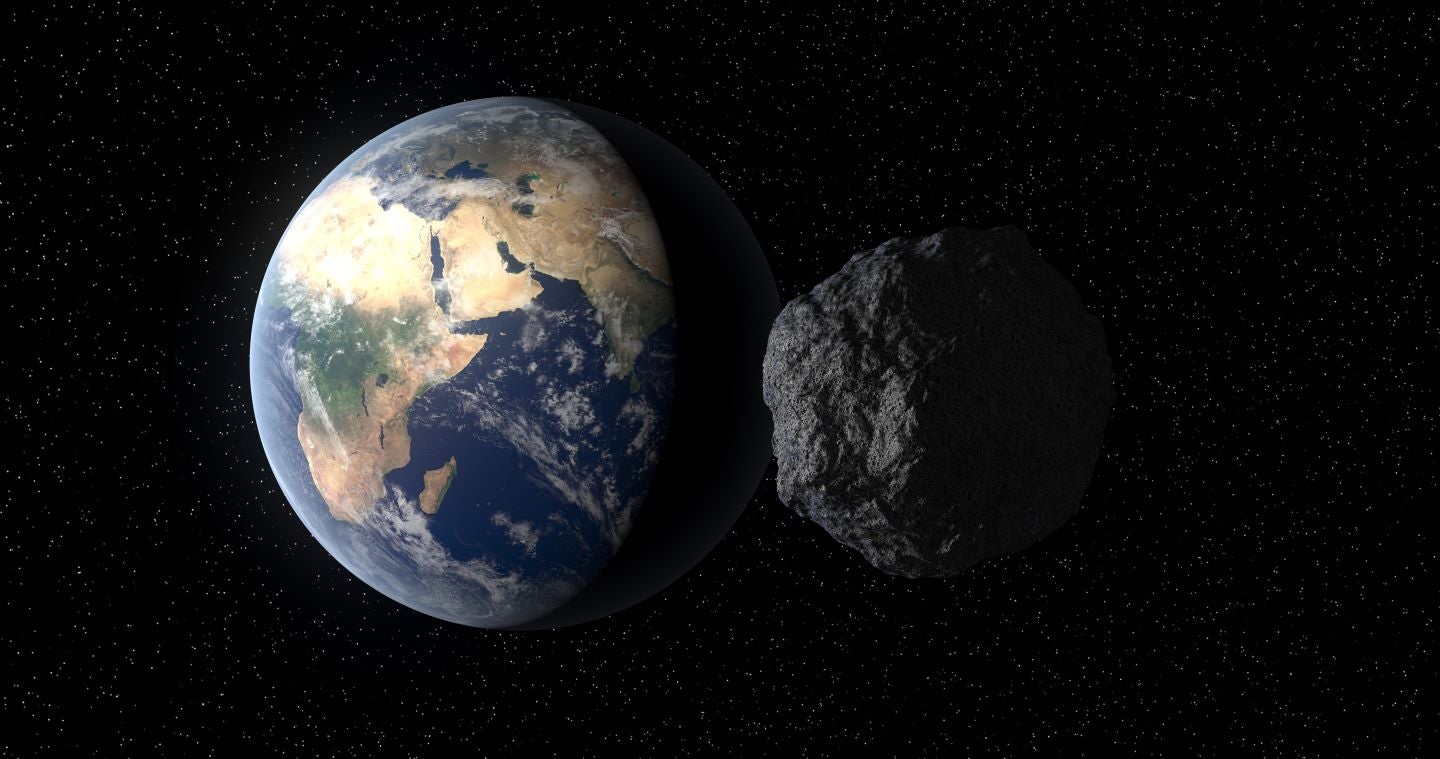The results of an asteroid sample brought to Earth by Nasa could help explain the origin of life on Earth. On 24 September 2023, an asteroid sample touched down on Earth, having completed a 28-month journey from Bennu, a 4.5 billion-year-old asteroid. This event is of interest to the space economy and, more specifically, asteroid mining, which is garnering lots of attention for its potential impact on life on Earth.
What can Bennu tell us about our origin?
Bennu was discovered in 1999 and is listed on the Jet Propulsion Laboratory’s Sentry List, meaning that the asteroid could impact Earth, with estimates believing this to be between 2178 and 2290. The chance of this happening is still very low, Bennu is approximately 100 million kilometres away from Earth, according to The Sky Live.
Early analysis of the sample brought back from Bennu shows that it has a high water and carbon content—the two key ingredients for life on Earth. It is believed that asteroids are the likely source of Earth’s water. The technology used to gather the Bennu sample is called the Touch-and-Go Sample Acquisition Mechanism (TAGSAM), which is a robotic arm on the OSIRIS-Rex space probe. Robotics are an important part of space operations, for example, they are used to service satellites in microgravity and for International Space Station (ISS) operations. Robots are also used for planetary exploration, with the Mars Curiosity rover being a famous example. Robots are preferred to humans as they can stay in space for longer, are cheaper, and there is less risk of harm. They also do not need to eat or sleep.
As the benefits of the space economy become apparent, more regulation is needed
It is important for regulation to keep up with the commercialisation of space and innovations in space exploration. Asteroid mining is an area that is starting to be lightly regulated. The Artemis Accords introduced legislation creating “safety zones” where competing nations can not impede each other’s mining activities. This demonstrates the widespread recognition that the subsector is receiving in its early stages of innovation. However, the agreement is non-binding. Russia and China, countries with a significant stake in the space economy, are not signatories to the Accords, which is likely to reduce confidence for investors in the space economy as legislation will not be uniform. This will create problems in the future. For example, in instances of satellite collisions, it will not be clear who is responsible and whether appropriate action can be taken.
The OSIRIS-Rex mission is an important milestone for the space economy and could be crucial for understanding the origins of life on Earth. The OSIRIS-REx mission was led by the University of Arizona, and the scientific milestone of delivering the largest-ever asteroid sample to Earth will be celebrated at the university’s next football game by showing a video tribute at halftime. Nasa has already started its next endeavour in this area, with the Psyche spacecraft currently on a 2.2 billion-mile journey to the asteroid Psyche. Asteroid mining has the potential to be a vital pillar of the space economy, but there is a long way to go before the relevant technology matures, sufficient regulation is in place, and costs are reduced. Read the Space Economy report written by the GlobalData Thematic Intelligence team here, to find out about the future of the space economy.
How well do you really know your competitors?
Access the most comprehensive Company Profiles on the market, powered by GlobalData. Save hours of research. Gain competitive edge.

Thank you!
Your download email will arrive shortly
Not ready to buy yet? Download a free sample
We are confident about the unique quality of our Company Profiles. However, we want you to make the most beneficial decision for your business, so we offer a free sample that you can download by submitting the below form
By GlobalData







